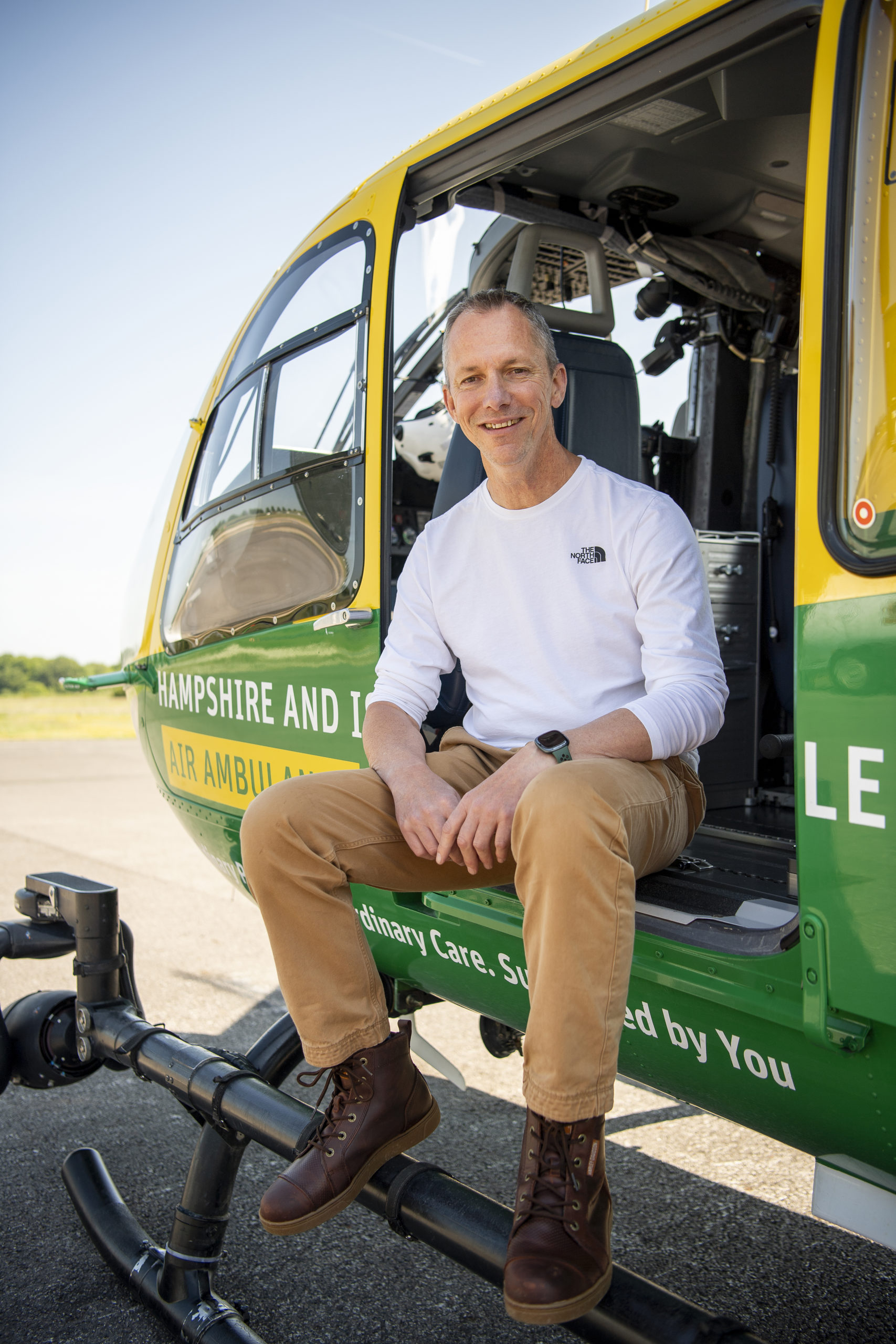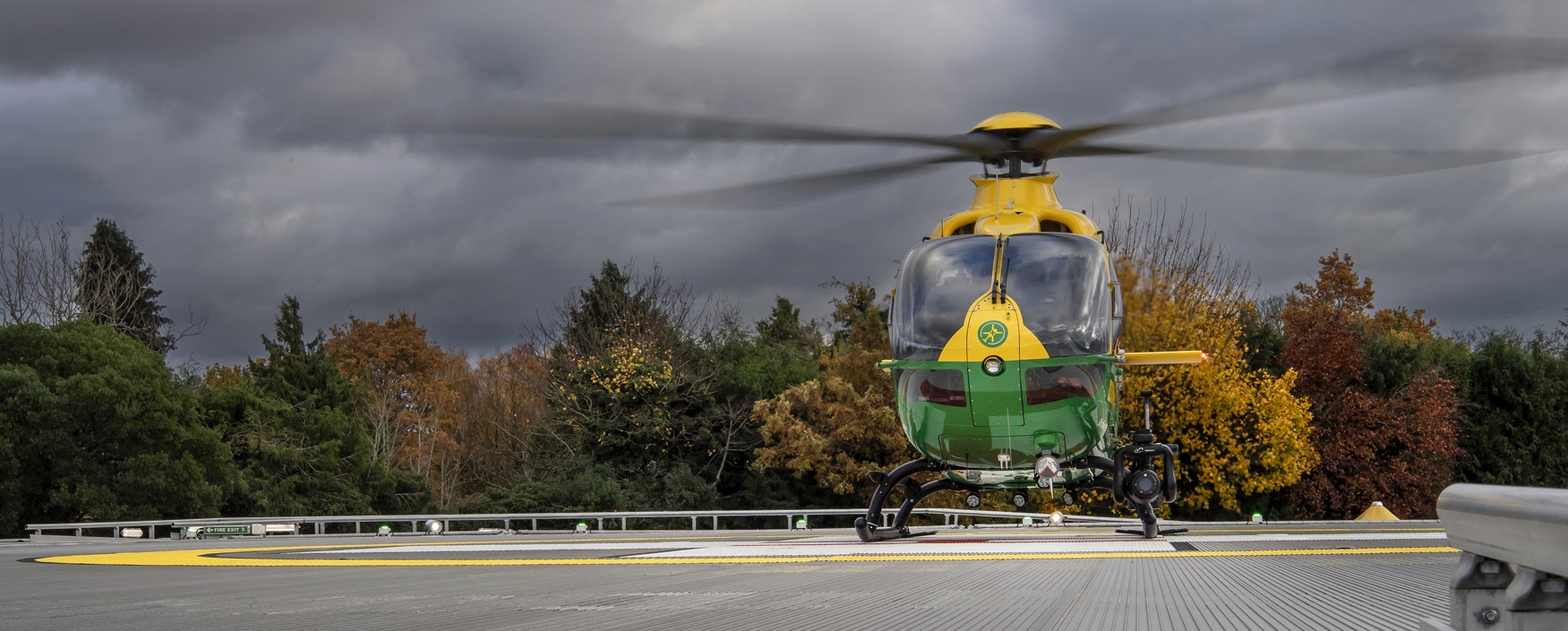Fewer than 1-in-10 people in the UK survive an out-of-hospital cardiac arrest. Remarkably, Phill Ashby is not only one of those survivors – he suffered three cardiac arrests in two hours.
50-year-old Army Staff Sergeant Phill Ashby has had a Christmas like any other year – family, food and festivities. Because of his physically demanding job, however, Phill has a watchful eye and is careful not to overindulge.
So much so, he and his wife, Aimee, joined by his sister-in-law and her husband, take part in a spin class on 29 December.
‘An excruciating pain’
As they make the short drive home from West End to Burridge, an excruciating pain takes over Phill’s body.
“I started feeling incredibly sick,” says Phill.
“I was pretty sure I knew what was going on – I was having a heart attack.”

Phill clambers out of the vehicle – desperate not to be sick in his sister-in-law’s car – and collapses on the side of the road while he waits for an ambulance. Just nine minutes after the 999 call, the first road ambulance crew from South Central Ambulance Service (SCAS) arrive on scene.
Out-of-hospital cardiac arrest
As they are treating Phill on the way to hospital, his condition deteriorates and he goes into cardiac arrest. They begin CPR and pull into the Hedge End Golf Centre. They alert the Hampshire and Isle of Wight Air Ambulance dispatch desk to request assistance.
Specialist Paramedic Tom is deployed in the Critical Care Paramedic car. He arrives on scene 13 minutes later and receives a handover from the SCAS crew.
Phill has been shocked three times with the defibrillator – and the ambulance team are using a manual ventilator called a ‘bag-valve-mask’ to support his breathing.
Tom straps a LUCAS device – a mechanical device that provides consistent chest compressions – on to Phill and performs a sedation with several advanced medications. He places a breathing tube into Phill’s airway and the team deliver further shocks with the defibrillator – he has seven shocks in total.
‘Unlikely to survive’
Phill’s wife Aimee watches the whole thing from the front passenger seat – aware that time is running out.
They eventually arrive at hospital where Phill is rushed through to have a stent put in. He spends the next three-and-a-half weeks in a coma in the Cardiac Intensive Care Unit.
The medical team tell Aimee and her sisters that he’s unlikely to survive.
Despite arresting once more in the unit and contracting sepsis and pneumonia, Phill is successfully brought out of his coma. But he has lost a lot of weight.
“I was so weak that I couldn’t even press the button on my alarm,” remembers Phill.
“That was a real low point in my life. I look back at that now and just can’t believe how ill I was. I couldn’t talk, I couldn’t even get out of bed. Every time I tried, I just collapsed.”
Phill has an implantable cardioverter defibrillator (ICD) fitted to monitor his heart and treat dangerous rhythms. He is discharged home on 2 February for further rehabilitation.
“Aimee has been by my side every day,” says Phill.
“I can’t begin to imagine how she must have felt sat in the front of the ambulance.”
With Phill slowly returning to work, he is switching his focus to fundraising for our service at the 2025 Runway Run, while also continuing his incredible work organising a charity Santa Run.
“There are just so many people I can’t thank enough.
“What Tom did that day is just unbelievable. Him and the team from SCAS never gave up. To do that every day is just amazing.
“I knew about the Air Ambulance and that it wasn’t an NHS funded operation. But I didn’t know much about what they can do – I don’t think many people do.
“Apart from all the rubbish stuff I’ve been through I feel like I’m the luckiest bloke in the world. I can’t believe I’m alive. I was fortunate enough to survive one out-of-hospital-cardiac – let alone three.
“I just can’t thank everyone enough. What more can I say?”











